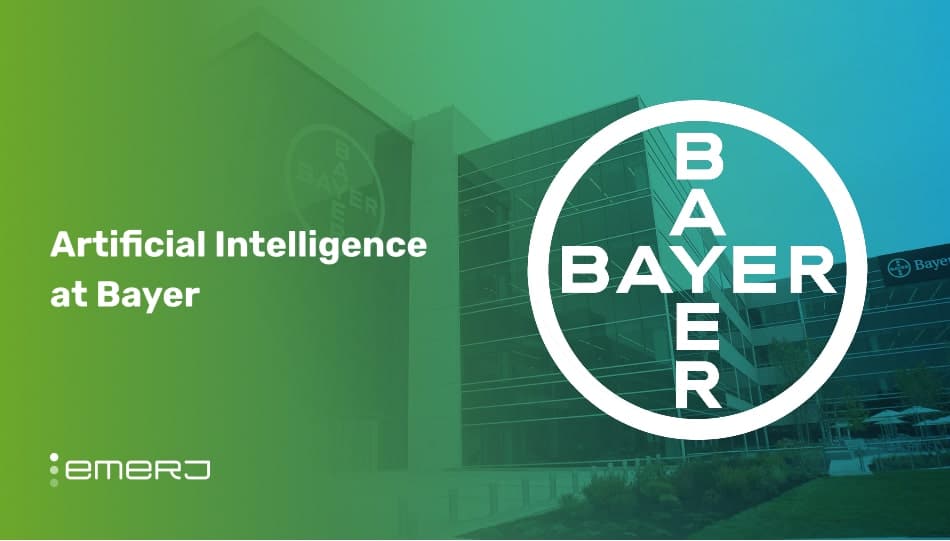Bayer, a leading global life sciences company, is leveraging Artificial Intelligence (AI) across its operations in Pharmaceuticals, Consumer Health, and Crop Science. In 2024, Bayer reported approximately €46.6 billion in sales and employed over 94,000 individuals. Given the scale of its operations, Bayer’s internal AI initiatives are critical for streamlining workflows and delivering tangible returns on investment (ROI).
Bayer’s commitment to innovation is evident in its substantial investment in research, with more than €6 billion allocated to R&D in 2024. The company has positioned AI as a crucial enabler in achieving sustainable agricultural practices and enhancing patient-centric medicine. Internally, AI is being applied in two significant areas: herbicide discovery in crop science and analytics for clinical trials in pharmaceuticals.
AI-Assisted Herbicide Discovery
Weed resistance among various species is a rising global concern that threatens crop yields and increases costs for farmers, particularly in key agricultural markets such as the United States and Brazil. Traditional methods of herbicide discovery are notoriously slow, often taking between 12 to 15 years and suffering from high attrition rates during the initial screening phase. In response, Bayer’s Crop Science division has adopted AI to expedite the discovery process and identify new modes of action more efficiently.
The company’s efforts include its upcoming herbicide, Icafolin, slated for launch in Brazil in 2028. AI technology is used in the early stages of herbicide discovery, facilitating the matching of weed protein structures with potential candidate molecules. This smart approach compresses the discovery funnel by allowing scientists to triage millions of possibilities against predefined criteria.
Bayer has highlighted its CropKey system, which combines safety, efficacy, and environmental standards into a profile-driven method for candidate molecule design. Reports indicate that CropKey has successfully identified over 30 potential molecular targets and validated more than 10 as entirely new modes of action. Although these achievements remain claims until further independent verification is conducted, the emerging data illustrates the transformative impact of AI in Bayer’s research methodologies.
Bayer’s AI-powered discovery process influences workflows by:
- Reducing Early-Stage Laboratory Cycles: Scientists focus on higher-probability matches, decreasing the time wasted on less promising candidates.
- Integrating Safety and Environmental Criteria: This filtering mechanism helps eliminate compounds unlikely to meet regulatory standards from the outset.
- Advancing Promising Molecules: By streamlining the early phases of development, Bayer aims to accelerate the overall timeline—from potentially 15 years down to just 10.
The feedback from external media outlets like Reuters and the Wall Street Journal underscores CropKey’s significance as an established AI deployment aiming to enhance Bayer’s research capabilities and accelerate commercialization timelines.
Clinical Trial Analytics Platform (ALYCE)
The complexity of modern pharmaceutical development requires managing various data streams, including electronic health records (EHR) and patient-reported outcomes. Traditional data management strategies often struggle to keep pace with this complexity, leading to inefficiencies in regulatory reporting and analysis speed. To address these challenges, Bayer developed ALYCE (Advanced Analytics Platform for the Clinical Data Environment) to streamline the management of clinical trial data.
ALYCE employs a layered "Bronze/Silver/Gold" data lake approach to ensure effective data ingestion across different types of sources, such as structured case report forms, semi-structured EHR extracts, and unstructured telemetry data from wearable devices. This architecture enables Bayer to standardize data processing while maintaining thorough compliance with regulatory requirements.
Features of the ALYCE platform include:
- Standardized Data Ingestion: ALYCE simplifies the input process, facilitating easier access to diverse data types, which enhances the quality of insights derived from clinical trials.
- Automated Quality Checks: By reducing manual intervention through automated pipelines, the platform allows Bayer’s staff to focus more on analytical tasks rather than on data troubleshooting.
- Faster Preparation of Analysis-Ready Datasets: This capability significantly shortens the time between data collection and review, enabling quicker decision-making and insights.
Bayer’s participation in forums like PHUSE demonstrates its commitment to transparency and collaboration within the pharmaceutical industry. Presentations outlining the technical specifics of ALYCE attest to its maturity and deployment, revealing a focus on operational efficiency and regulatory compliance.
While Bayer has yet to release specific metrics regarding cycle-time reductions or cost savings from ALYCE, the detailed disclosures regarding data volumes, architecture diagrams, and validation processes indicate that the platform is actively being used and has received peer-level evaluation.
Conclusion
Bayer’s proactive integration of AI into its primary business functions illustrates a strategic approach to overcome existing challenges in agriculture and pharmaceuticals. The advancements in AI-assisted herbicide discovery and clinical trial analytics represent not only a commitment to innovation but also a dedication to achieving greater efficiency and efficacy within highly complex environments.
As Bayer continues to advance its AI initiatives, the implications for both sustainable agricultural practices and the enhancement of patient care are profound. The company’s promising internal deployments, such as CropKey and ALYCE, are important case studies of how AI can be leveraged to mitigate challenges, streamline workflows, and ultimately redefine industry standards in the life sciences sector.
While much remains to be validated through independent investigations, Bayer’s ongoing efforts signify a shift toward a future where AI is not merely a tool but a transformative force within the life sciences industry. As these technologies mature, the continuous feedback loop from practical applications and peer-reviewed research will be essential in measuring their true impact on productivity and advancements in health and agricultural sustainability.










